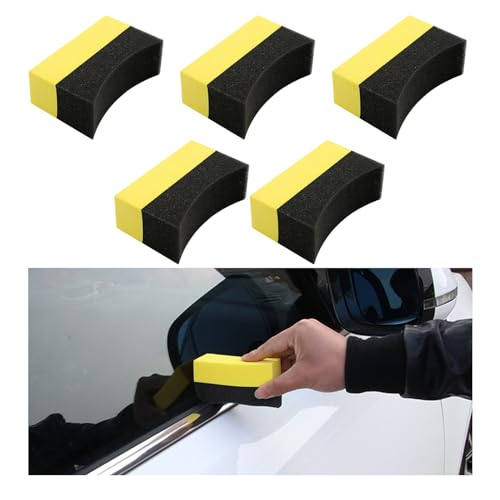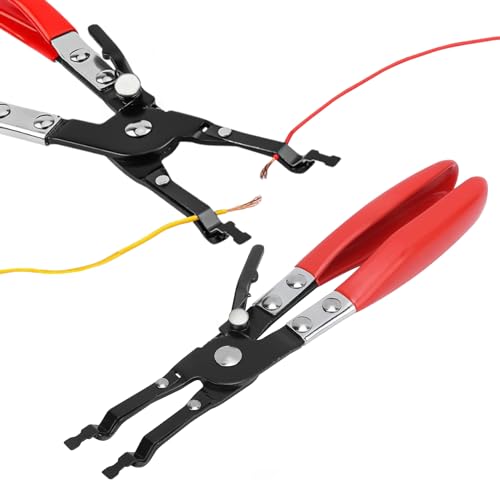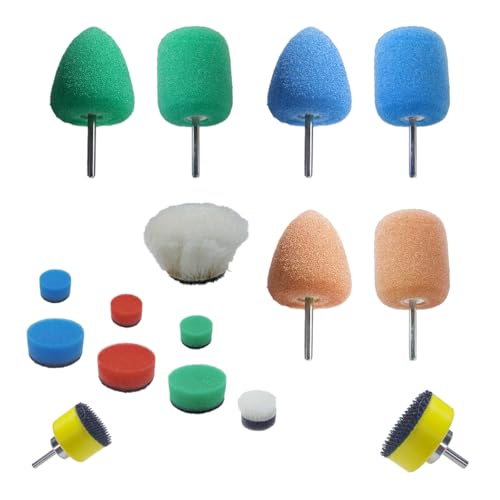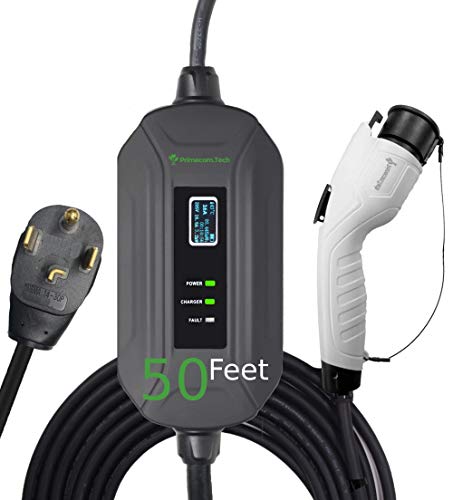TonyWilliams
Well-known member
Ampster said:I would guess that a buyback coming out of arbitration might be considered voluntary.
My understanding is that the arbitration is not part of the Lemon Law process, but rather something that we can do which doesn't cost us anything. If we go to court under Lemon Law then the presumptions (4 service instances and/or 30 days out of service) apply in our favor. Also if a judge awards a verdict against Toyota, they have to report the car as a lemon. As Tony said, arbitration is free so I don't know why one would not go through arbitration. As a consumer we are not bound by the arbitration. Is that your understanding Tony?
First, good news for out-of-state buyers!!! Since ALL the Rav4 EVs were actually purchased in California, they are ALL eligible for California Lemon Law!!!!
I would guess that it would be a "settlement", and not an ordered Lemon Law return, hence "voluntary". Just an educated guess.
The arbitrator could order anything... Replace the Rav4 with another one... Buy back with adjustments for miles (like a Lemon Law return), get a different Toyota car, etc.
I believe that I would have to "accept" any judgement from the arbitrator. All the rules can be found in the California Dispute Resolution process.
California Dispute Settlement Program (CDSP)
http://www.dca.ca.gov/acp/cdsp.shtml
Toyota (Scion) - (888) 300-6237
The CDSP is a free service for vehicle owners with warranty disputes.
The CDSP program offers arbitration to vehicle owners and manufacturers to resolve disputes involving vehicles under California's lemon law.
In arbitration, the parties bring their case to an Arbitrator who reviews the complaint and makes a decision. Arbitrated decisions are binding on the manufacturer, once accepted by the consumer. Arbitrators are attorneys and/or dispute resolution professionals trained on the Magnuson-Moss Warranty Act, California's lemon law, and the specific rules and guidelines of the CDSP program.
RULES:
CALIFORNIA DISPUTE SETTLEMENT PROGRAM HEARING PROCESS RULES
1. AGREEMENT OF PARTIES
These Rules shall apply whenever the parties have agreed to utilize the California Dispute Settlement Program (CDSP) administered by the National Center for Dispute Settlement (NCDS). The parties shall be deemed to have agreed to these rules in the form in effect when the request for arbitration is received by CDSP.
2. INITIATION OF PROCEEDINGS
Arbitration is initiated by the filing of a request for arbitration with CDSP in accordance with the directions contained in the documents under which the dispute has arisen.
3. APPOINTMENT OF ARBITRATOR
CDSP shall appoint a single arbitrator from its panel of qualified arbitrators.
4. QUALIFICATIONS OF AN ARBITRATOR
A person appointed as arbitrator shall disclose to CDSP any circumstances likely to affect impartiality, including any bias, any financial or personal interest in the outcome of the proceeding, any past or present relationship with the parties or their counsel. Upon receipt of such information from the arbitrator or any other source, CDSP shall communicate the information to the parties and, ifit deems appropriate, to the arbitrator. Upon objection of a party to the service of an arbitrator, CDSP shall determine whether the arbitrator should be disqualified and shall inform the parties of its decision, which shall be conclusive.
5. VACANCY
CDSP is authorized to appoint another arbitrator if a vacancy occurs or if an appointed arbitrator is unable to serve promptly. The arbitrator so appointed shall be subject to disqualification for the same reasons specified in Section 4.
6. TIME AND PLACE OF HEARING
The arbitrator shall fix the date and time of the hearing. Notice of date, time and location shall be given to the parties at least five (5) days in advance.
7. REPRESENTATION
Any party to the proceeding may attend the hearing or be represented at the hearing by another person. In the case of representation by an attorney, in the interest of fairness to all parties, the party retaining counselor their attorney must advise CDSP and the other parties of the identity of their representative at least five (5) days prior to the date of the hearing. Failure to follow this rule with regard to notice may result in an adjournment of the scheduled hearing.
8. ATTENDANCE AT HEARING
All parties to the dispute, as well as their representatives and witnesses are entitledtoattendthehearing. Meetings of the arbitrator or panel of arbitrators held to hear and decide disputes will be open to observers on reasonable and nondiscriminatory terms. The identity of the parties and products involved need not be disclosed at these meetings. As these meetings are open to the public, media personnel cannot video or audio record these proceedings. The parties may make appropriate notes of the proceedings but audio and video recordings are strictly prohibited. The arbitrator may request that a person(s) leave the hearing for conduct which interferes, in any manner, with the hearing process.
9. POSTPONEMENTS
Hearings shall be postponed by the arbitrator only for good cause.
10. STENOGRAPHIC RECORD
As an infonnal proceeding, there is no requirement that a stenographic record be takenofthehearing. Anypartywhowishesto,maymakeaprovisionfora certified court stenographer at that party's own expense. A copy of the transcript must be provided to the arbitrator. The parties may make appropriate notes of the proceedings, but audio or video recordings are strictly prohibited.
11. PROCEEDINGS AND COMMUNICATION WITH THE ARBITRATOR
The hearing shall be conducted by the arbitrator in any manner, which will pennit full and expeditious presentations o f the case by both parties. There shall be no direct communication between any party or representative of a party and the arbitrator other than at the hearing except when initiated by the arbitrator pursuant to Section 6 and limited to the time or place of the hearing. The parties or their representative may speak with any other party or that party's representative at any time.
12. ARBITRATION IN THE ABSENCE OF A PARTY
The arbitration hearing may proceed in the absence of any party or representative who has received notice of the hearing and fails to be present or fails to obtain an adjournment. A decision shall not be made solely on the default of a party. The arbitrator shall require any party who is present to submit such evidence as the arbitrator may require for the making of a decision.
13. EVIDENCE
The parties may offer such evidence as is relevant and material to the dispute and shall produce such additional evidence as the arbitrator may deem necessary to an understanding and detennination of the dispute. The arbitrator shall be the sole
judgeoftherelevanceandmaterialityoftheevidenceoffered. Confonnitywith the legal rules ofevidence shall not be necessary. The expense ofwitnesses, expert witnesses, or reports submitted by any party shall be paid by the party producing such witnesses or reports. Any party may request a test drive. A test drive in such cases is a part of the proceeding and shall be conducted in a manner consistent with these rules.
14. EVIDENCE BY FILING OF DOCUMENTS
The arbitrator may receive and consider documentary evidence. Documents to be considered by the arbitrator and not produced at or before the hearing shall, in all cases, be submitted to CDSP as directed by the arbitrator.
15. CLOSING OF HEARINGS
The arbitrator shall ask whether the parties have any further proofs to offer or witnesses to be heard. Upon receiving negative replies or when satisfied that the record is complete, the arbitrator shall declare the hearings closed.
16. WAIVER OF RULES
Any party who proceeds with Arbitration after knowledge that any provision or requirement ofthese rules has not been complied with and who fails to state objections thereto in writing shall be deemed to have waived the right to object.
17. TIME OF DECISION
The decision shall be rendered promptly by the arbitrator and unless otherwise agreed by the parties, no later than ten (10) days from the date of the closing of the hearing.
18. FORM OF DECISION
The decision shall be in writing and shall be signed by the arbitrator.
19. DELIVERY OF DECISION TO PARTIES
Parties shall accept as legal delivery ofthe decision the placing ofthe decision or a true copy thereof in the mail addressed to the party or its legal representative at the last known address, by personal service of the decision, or by the filing of the decision or any other manner that may be permitted by law.
20. APPLICATIONS TO COURT AND EXCLUSION OF LIABILITY
By agreeing to these rules or proceeding in any manner under these rules, each party agrees:
(a) Neither CDSP and NCDS, its officers, directors or employees nor any arbitrator in a proceeding under these rules is a necessary party in judicial proceedings relating to the arbitration; and
(b) Neither CDSP and NCDS, its officers, directors or employees nor any arbitrator shall be liable to any party for any act or omission in connection with any arbitration conducted under these rules.
21. INTERPRETATION AND APPLICATION OF RULES
Except where the rules specifically state otherwise, the arbitrator shall interpret and apply these rules insofar as they relate to the arbitrator's powers and duties. All other rules shall be interpreted and applied by the program administrator.
22. CLARIFICATION
Within twenty (20) days of the date of mailing of the Decision, any party may request clarification of the Decision. Application for clarification must be sent to CDSP for transmittal to the arbitrator and all other parties. A request for clarification must set forth the specific portion or portions of the Decision, which are subject to the request. The arbitrator is not empowered to redetennine the merits of any claim already decided, but may clarify the Decision if the arbitrator finds that the Decision is not within the scope ofthe warranty or its coverage or has improperly identified a party or made an error not otherwise affecting the merits ofthe case. Written objections to clarification must be delivered to CDSP for transmittal to the arbitrator and simultaneously sent to all parties within ten (10) days ofthe application. The arbitrator shall rule on the application for clarification within ten (10) days from receipt of an objection or the expiration of time to make objections, whichever is earlier.
****************************************
California Lemon Law / SONG-BEVERLY WARRANTY RIGHTS
http://oag.ca.gov/consumers/general/lemon
The Song-Beverly Consumer Warranty Act (beginning with Civil Code section 1790) provides protection for consumers who lease or buy new motor vehicles. The law requires that if the manufacturer or its representative in this state, such as an authorized dealer, is unable to service or repair a new motor vehicle to meet the terms of an express written warranty after a reasonable number of repair attempts, the manufacturer is required promptly to replace the vehicle or return the purchase price to the lessee or buyer. The purchase price that must be returned includes the price paid for manufacturer-installed items and transportation but does not include the price paid for nonmanufacturer items installed by the dealer. The lessee or buyer is completely free to choose whether to accept a replacement or a refund. Whatever the choice, the manufacturer is also responsible to pay for sales or use tax; license, registration, and other official fees; and incidental damages that the lessee or buyer may have incurred such as finance charges, repair, towing, and rental car costs.
The lessee or buyer may be charged for the use of the vehicle regardless of whether the vehicle is replaced or the purchase price is refunded. The amount that may be charged for use is determined by multiplying the actual price of the new vehicle by a fraction having as its denominator 120,000 and as its numerator the number of miles traveled by the vehicle before it was first brought in for correction of the problem. For example, if the car had traveled 6,000 miles before it was first brought in for correction of the problem, the lessee or buyer could be charged 5% (6,000/120,000 = 5%) of the purchase price for usage.
The law applies for the entire period of your warranty. For example, if your vehicle is covered by a three-year warranty and you discover a defect after two years, the manufacturer will have to replace the vehicle or reimburse you as outlined above if the manufacturer or its representative is unable to conform the vehicle to the express warranty after a reasonable number of attempts to do so.
Song-Beverly does not apply if the problem was caused by abuse after the vehicle was delivered. Be sure you follow the terms of the warranty for maintenance and proper use of the vehicle.
Although there is a four-year statute of limitations to bring a law suit for breach of warranty or for violations of Song-Beverly, you should act promptly to try to resolve the problem fairly and quickly without legal action if possible.
THE "LEMON LAW" AND WHAT IS A REASONABLE NUMBER OF REPAIR ATTEMPTS
What is considered a reasonable number of repair attempts will depend on the circumstances including the seriousness of the defect. For example, one or two repair attempts may be considered reasonable for serious safety defects such as brake failure, depending on the exact situation.
A special provision, often called the "Lemon Law," helps determine what is a reasonable number of repair attempts for problems that substantially impair the use, value, or safety of the vehicle. The "Lemon Law" applies to these problems if they arise during the first 18 months after the consumer received delivery of the vehicle or within the first 18,000 miles on the odometer, whichever occurs first. During the first 18 months or 18,000 miles, the "Lemon Law" presumes that a manufacturer has had a reasonable number of attempts to repair the vehicle if either (1) The same problem results in a condition that is likely to cause death or serious bodily injury if the vehicle is driven and the problem has been subject to repair two or more times by the manufacturer or its agents, and the buyer or lessee has at least once directly notified the manufacturer of the need for the repair of the problem as provided in the warranty or owner's manual or (2) The same problem has been subject to repair four or more times by the manufacturer or its agents and the buyer has at least once directly notified the manufacturer of the need for the repair of the problem as provided in the warranty or owner's manual or (3) The vehicle is out of service because of the repair of any number of problems by the manufacturer or its agents for a cumulative total of more than 30 days since delivery of the vehicle.
The "Lemon Law" presumption is a guide, not an absolute rule. A judge or arbitrator can assume that the manufacturer has had a reasonable number of chances to repair the vehicle if all of the conditions are met. The manufacturer, however, has the right to try to prove that it should have the chance to attempt additional repairs, and the consumer has the right to show that fewer repair attempts are reasonable under the circumstances.
Be sure to check your warranty and owner's manual for instructions. You may be required to directly notify the manufacturer of the problem(s). It is a good idea to send your written notice to the manufacturer at the address shown in the warranty or owner's manual by certified mail, return receipt requested so that you have proof that your letter was received. Keep a copy of all correspondence.
If the manufacturer maintains a state-certified arbitration program, the consumer must submit the warranty dispute to the arbitration program before the consumer can take advantage of the presumption in court. Arbitration is an alternative to court proceedings. The consumer may assert the presumption during arbitration. Information about any arbitration should be described in the warranty or owner's manual.
Not every manufacturer maintains a state certified program (TOYOTA DOES). You should check with the Department of Consumer Affairs' Arbitration Certification Program at (800) 952-5210 or on the Internet at http://www.dca.ca.gov/acp/. You can also ask for the department's free pamphlet that explains more about arbitration, "Lemon Aid for Consumers."
**********************************************
Magnuson-Moss Act
http://en.wikipedia.org/wiki/Magnuson%E2%80%93Moss_Warranty_Act
The Magnuson-Moss act was enacted by Congress in response to the widespread misuse by merchants of express warranties and disclaimers. The legislative history indicates that the purpose of the Act is to make warranties on consumer products more readily understood and enforceable and to provide the Federal Trade Commission with means to better protect consumers.
The statute is remedial in nature and is intended to protect consumers from deceptive warranty practices. Consumer products are not required to have warranties, but if one is given, it must comply with the Magnuson-Moss Act.


































